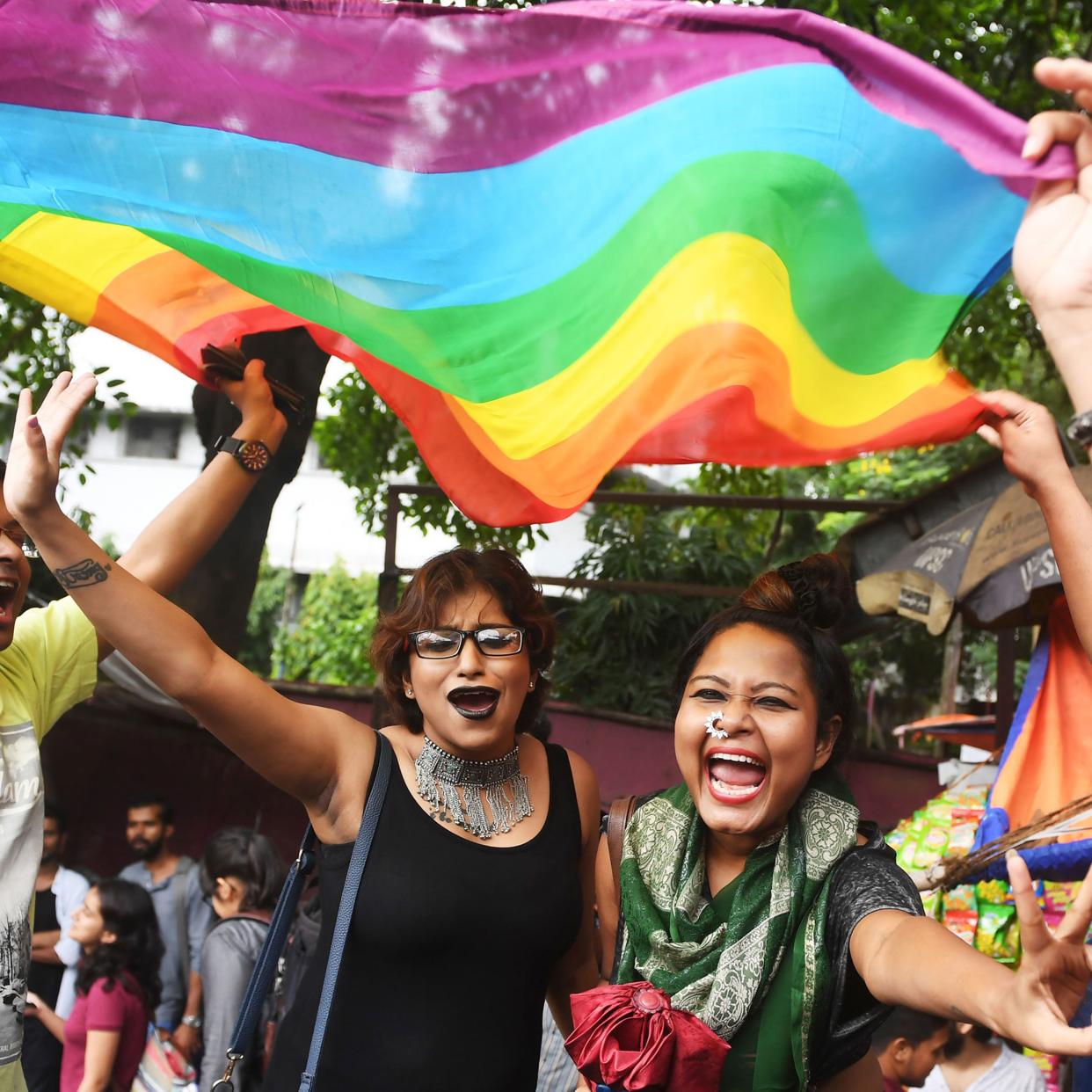In India, Celebrating a Landmark Ruling Decriminalizing Gay Sex

In a landmark ruling on Thursday, India’s Supreme Court decided to decriminalize gay sex, quashing an archaic, colonial-era law known as Section 377 that had categorized same-sex intercourse as an “unnatural offense.”
The decision, which was unanimously agreed upon by the judges, comes as a major victory for India’s gay community and its supporters after a series of contentious battles in the lower courts and years-long efforts to effect change with very little prior progress to show for it. A 2009 ruling had attempted to do away with exactly this section at the Delhi high court, but after claiming that applying a ban on "carnal intercourse" was "against the order of nature", the courts reversed that decision in 2014, saying only that the law affected a “minuscule fraction” of the population, and that, therefore, it did not really violate the constitutional rights of Indians on the whole— implying both that the gay community was insignificant, and also that they did not warrant the same protections that heterosexuals enjoy.
That all changed today when the country’s chief justice read the judgement aloud, noting that “criminalizing intercourse is irrational, arbitrary, and manifestly unconstitutional.” Other justices chimed in with similar sentiments, noting that homosexuality is “natural” and that the Constitution has to move along with the times. Justice Indu Malhotra admitted that “history owes an apology to members of the community for the delay in ensuring their rights” in what was not simply an acknowledgement of the very painful back-and-forth the gay community has had to endure in their fight for equal treatment, but also, many feel, a signal that this is the first of several important, and permanent, steps forward.
That’s not to say that things will change overnight. Societal pressures in India continue to take root in the country's seemingly inveterate conservatism, and many queer people prefer to keep their sexuality out of day-to-day conversation, and out of their relationships with their families. The ruling is, however, categorically final, and young people in particular await its long-term effects.
26-year-old Vikramaditya Sharma, a creative director of a design studio in New Delhi, is one of them. “Today affected me very slightly, but very deeply,” he says. “To be honest, I came out in the U.S. when I was at art school, so I never felt oppressed or judged about my sexuality while I was there. I was in a long-term relationship. When I moved back to India three years ago, I became conscious of it here in a way I wasn’t before. It become more apparent when my boyfriend moved here, too.”
“We always had our guard up, but whereas in the U.S. I never paid attention to our body language, here, I was aware of every smile, every indication of affection," he continued, admitting that he had harbored fears of an angry mob turning up where he shared with his boyfriend. "Today, though, I felt a sense of ease that I haven’t felt since living in the States. I’ve been smiling from ear-to-ear, and it’s been amazing to see my friends— of all sexual orientations— participate in this conversation and celebrate alongside me. I can feel the progress in my body language today."
Ebullient cries rang out on the streets all over India today, with those celebrating decked in rainbow flags and color. Says Sharma: "I feel I am one step closer to being able to truly express myself in my home, in my city, in my country."
Read More Culture Stories:
The 54 Best Romantic Comedies of All Time—Read More
Dating Someone Older Isn’t Always a Bad Idea—Read More
Azealia Banks, Grimes, and Elon Musk: What’s Going On Here?—Read More
17 Stars Who Went to Extreme Lengths for Movie Roles—Read More
Henry Golding, Crazy Rich Asians Star: Everything You Need to Know—Read More

